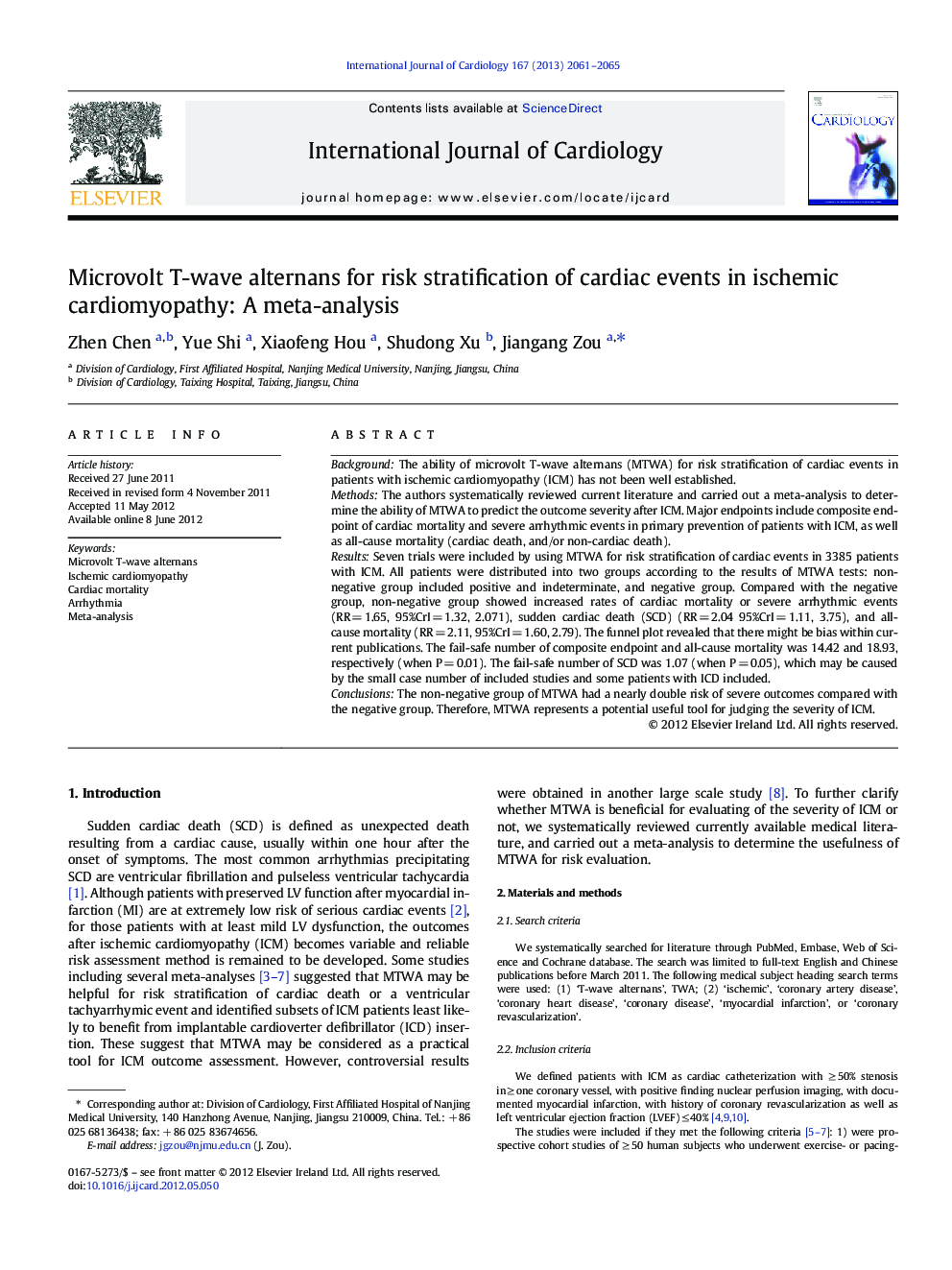| Article ID | Journal | Published Year | Pages | File Type |
|---|---|---|---|---|
| 5977231 | International Journal of Cardiology | 2013 | 5 Pages |
BackgroundThe ability of microvolt T-wave alternans (MTWA) for risk stratification of cardiac events in patients with ischemic cardiomyopathy (ICM) has not been well established.MethodsThe authors systematically reviewed current literature and carried out a meta-analysis to determine the ability of MTWA to predict the outcome severity after ICM. Major endpoints include composite endpoint of cardiac mortality and severe arrhythmic events in primary prevention of patients with ICM, as well as all-cause mortality (cardiac death, and/or non-cardiac death).ResultsSeven trials were included by using MTWA for risk stratification of cardiac events in 3385 patients with ICM. All patients were distributed into two groups according to the results of MTWA tests: non-negative group included positive and indeterminate, and negative group. Compared with the negative group, non-negative group showed increased rates of cardiac mortality or severe arrhythmic events (RRÂ =Â 1.65, 95%CrIÂ =Â 1.32, 2.071), sudden cardiac death (SCD) (RRÂ =Â 2.04 95%CrIÂ =Â 1.11, 3.75), and all-cause mortality (RRÂ =Â 2.11, 95%CrIÂ =Â 1.60, 2.79). The funnel plot revealed that there might be bias within current publications. The fail-safe number of composite endpoint and all-cause mortality was 14.42 and 18.93, respectively (when PÂ =Â 0.01). The fail-safe number of SCD was 1.07 (when PÂ =Â 0.05), which may be caused by the small case number of included studies and some patients with ICD included.ConclusionsThe non-negative group of MTWA had a nearly double risk of severe outcomes compared with the negative group. Therefore, MTWA represents a potential useful tool for judging the severity of ICM.
